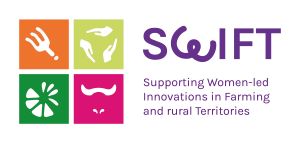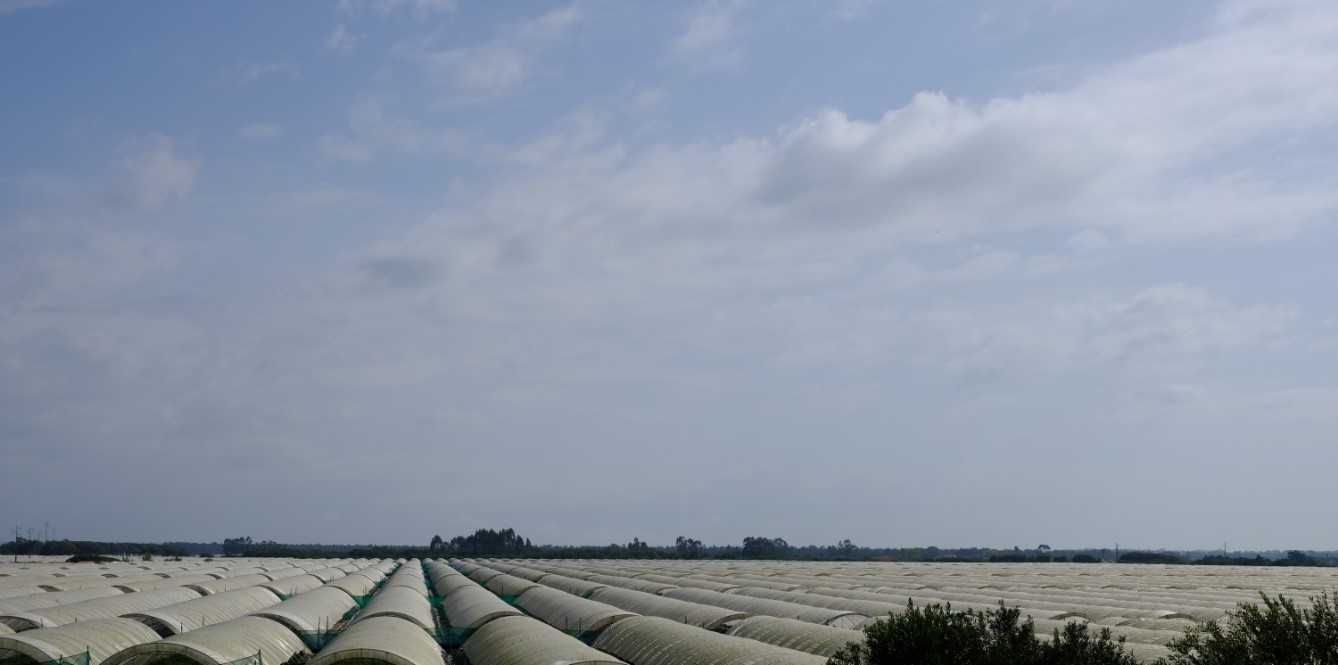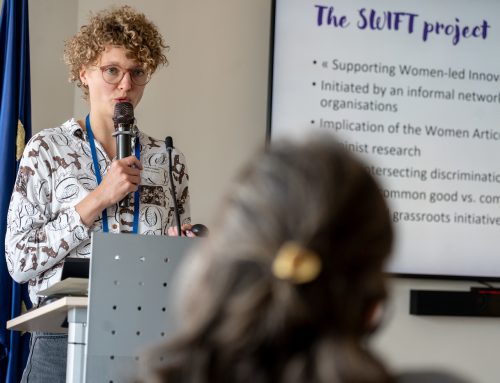Soledad Castillero Quesada and Rita Calvário, Centre for Social Studies, University of Coimbra
Food and health are two ideas that go hand in hand, as eating is first and foremost a physiological issue, but also a social, ecological and cultural issue, as well as an economic one. Today, we are in the era of healthy lifestyles, where the UN’s 2030 Agenda for Sustainable Development and the European Green Pact and its Field to Plate Strategy call for healthy, sustainable and equitable food systems. In addition to the focus on consumption and access to ‘healthy’ food – what is healthy food and by whom is a controversial issue – there is a less visible aspect that has to do with the forms of production and especially who produces the food. We are talking not only about the figure of the peasant farmer, the producer, but also about the agricultural and handling workers who harvest, pack, label, clean, cut, etc.
The current model of global agricultural production is based on what the literature calls intensive agricultural export enclaves where the key principle is to maximise production at the lowest cost. This in turn is the result of what Ecology-World understands as the creation of production frontiers and the control of the four cheap natures: raw materials, energy, labour and food. Thus, labour is made cheaper and more precarious so that food can be competitive in global markets and surplus value is maximised. This is the case of crops such as strawberries, blueberries, tomatoes and lettuce, which are very common in southern Europe, where this model based on cheap and vulnerable migrant labour has expanded.
SWIFT is carrying out a comparative study between Andalusia, in southern Spain, and Odemira, in southern Portugal, focusing on immigrant women and the red fruit sector. The following is a brief overview based on a visit to Odemira on 20-21 April, a weekend in the middle of the red fruit harvesting season, accompanied by Alberto Matos from the Beja delegation of SOLIM – Solidariedade Imigrante, an immigrant NGO that works for the rights of immigrants.
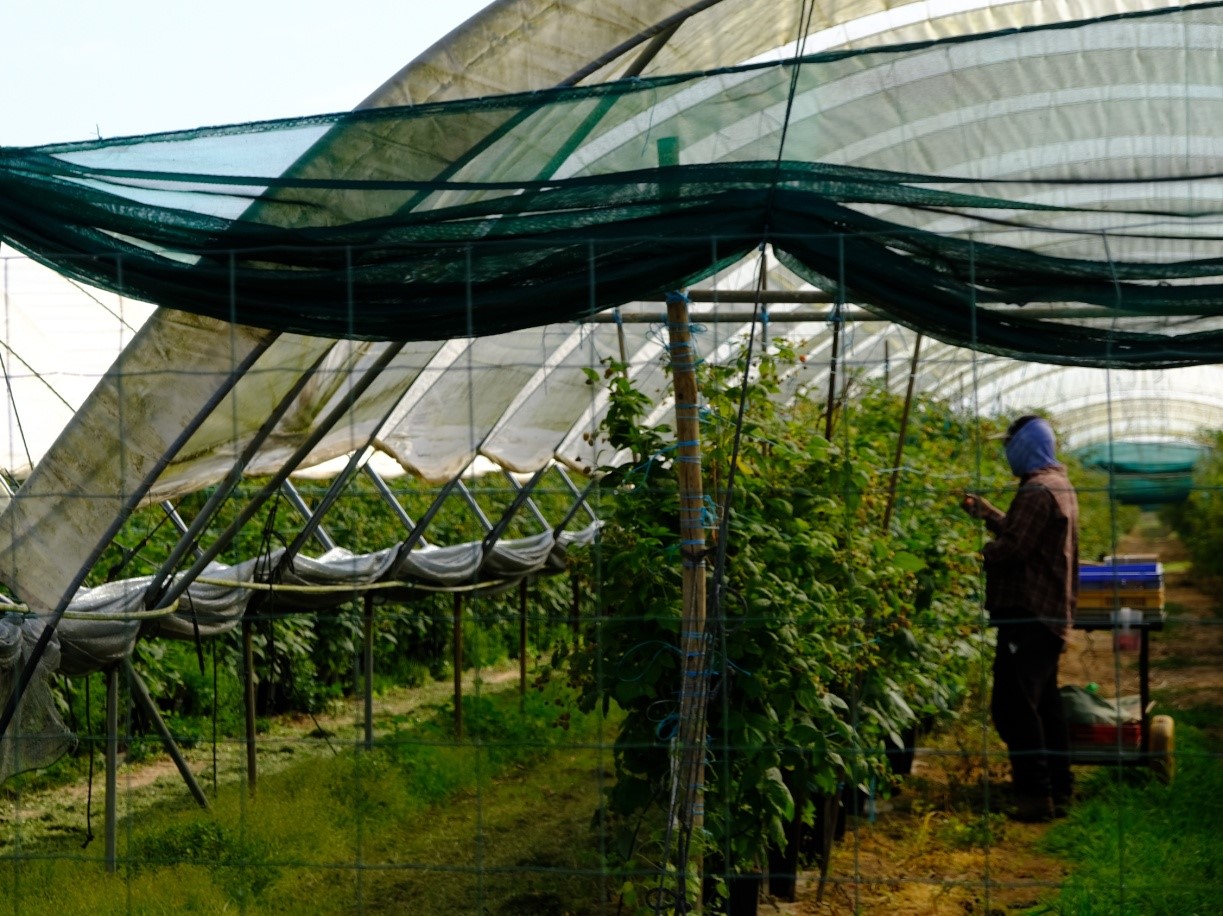
Image 2. Agricultural worker in a red fruit greenhouse. Source: Rita and Soledad
The expansion of red fruit in Odemira
Odemira, located in the Alentejo Litoral, belongs to the district of Beja and is the seat of the largest municipality in Portugal and one of the largest in Europe. In the last 20-30 years it has become an intensive production enclave for export, first by European foreign capital in the 1970’s (Italian and Spanish) and then international in the late 1980s (after joining the EU in 1986) and especially in the 1990s, with the installation in 1998 of the company Driscoll, a world leader in the production and distribution of red fruit.
According to official data, Portugal devotes about 5,000 hectares to the cultivation of red fruit, i.e. strawberries, raspberries, blueberries and blackberries. In 2022, around 18,092 tonnes of strawberries were produced (reaching 23,550 tonnes in 2020), 29,304 tonnes of raspberries, 19,051 tonnes of blueberries and 2,712 tonnes of blackberries. These figures place Portugal as one of the main producing and exporting countries in the European Union. In the production and marketing of fresh fruit and vegetables at national level, red fruit companies occupy the first places in terms of revenue.
Two key factors contributed to all this: the ‘abundance’ of cheap water allowed by the Santa Clara dam and the Irrigation Perimeter of the river Mira, built already in the late 1960s by the dictatorship in the perspective of modernising agriculture in the region; and, the ‘abundance’ of cheap labour, first from the local population that became unemployed with the destruction (from 1977 onwards) of the Agrarian Reform initiated in 1975 — in the sequence of the Portuguese Revolution of 25 April 1974 — and then from the immigrant population.
Today, with intensive water consumption by industrial agriculture, drought problems are worsening in the region and for the local populations. Moreover, a large part of these municipalities are protected areas and are located within a natural park and the Natura 2000 network, making them a biodiversity hotspot. The environmental and landscape damage is evident, in addition to potential health problems due to the abundant use of chemicals in this intensive agriculture. In recent years, Odemira is the municipality where the population has grown the most, due to tourism (not yet massified), digital nomads and, above all, the labour force in intensive agriculture. While this counteracts rural abandonment and brings cultural diversity to local territories, it also means increased difficulties due to the exploitation and vulnerability to which this population is subjected in terms of labour and social rights, which influences everything else, such as access to housing.
A brief overview of Odemira and some connections with Huelva
In our tour of the territory, from Odemira to São Teotónio, Brejão and S. Miguel and from Zambujeira do Mar to Longueira/Almograve, we were able to observe a great extension of greenhouses, in many cases hidden by outside plants or covered by nets. In addition to the ‘sea of plastic’, the most striking thing was the continuous stream of working people walking along the roads without security, without asphalt conditioning, without lighting, often for kilometres (we came across the same people hours later on other roads far from the first ones). There is no rest at weekends, not even on Sundays, and the image of the workers was mixed with senior tourism, nature or surfing in the same area. Two worlds, the fruit of the socio-economic polarisation of the territory, intersect but do not mix.
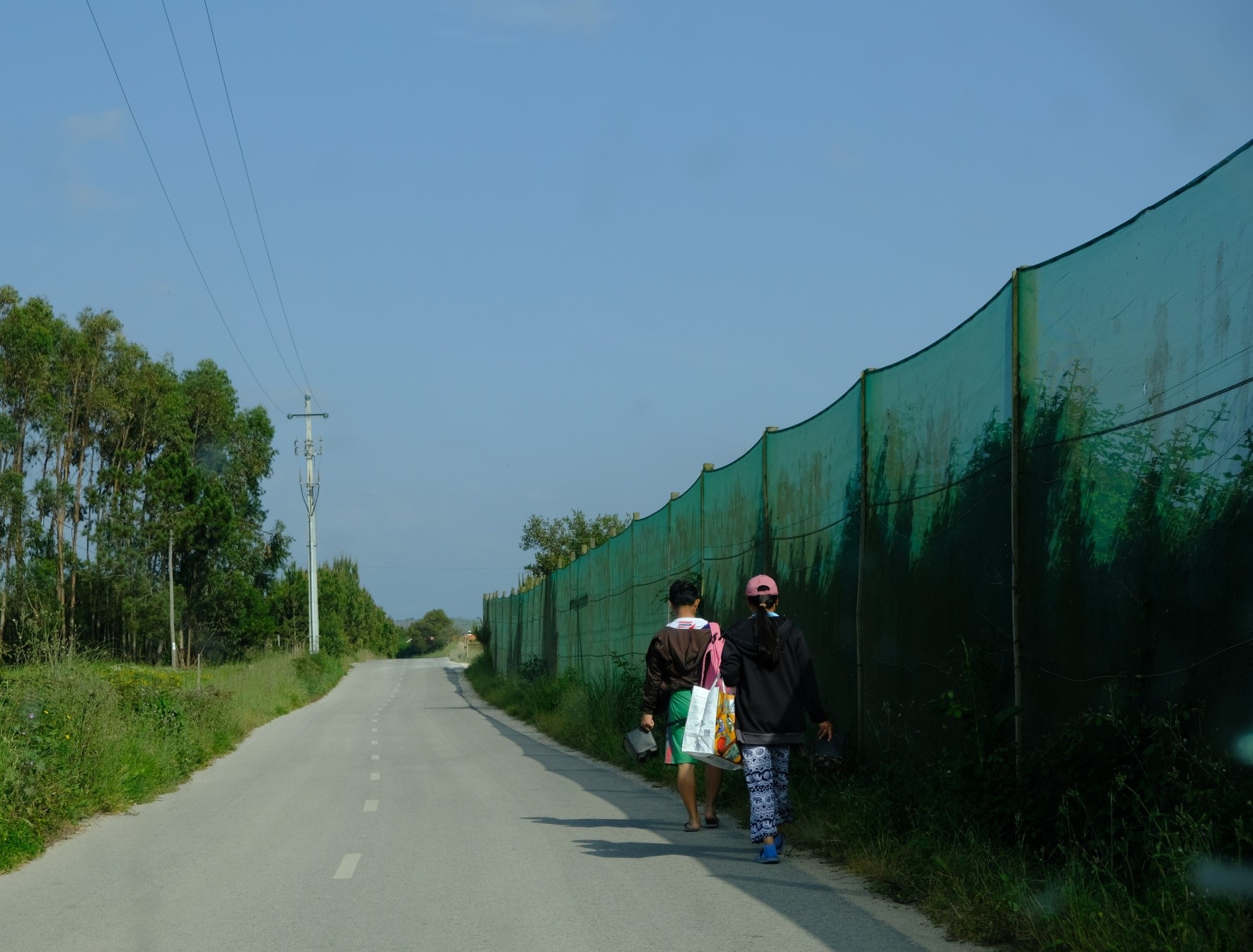
Image 4. Migrants walking along the road. Souce: Rita and Soledad
The workers in Odemira are mainly from the Asian continent, from India (3,000), Nepal (2,790), Thailand (796), Bangladesh (504), etc., according to official data from 2021. They are mainly men, but, as we have seen on our tour, there are also women who join the agricultural work in the red fruit sector and others. In contrast to the red fruit sector in Huelva, where the majority are women and who arrive contracted at origin, women here are not the main workforce in the sector and arrive mainly as a result of family reunification. However, in both cases, it is still women who head the seasonal, seasonal jobs, as they do not occupy technical, maintenance, supervisory or other positions relegated to workers who do keep their jobs on an annual basis. Women are usually in charge of harvesting tasks, although in Portugal there are companies where men and women alike harvest, clean the greenhouse, plant and do the same manual labour tasks, according to some women workers. In any case, they often work in precarious and harassing conditions.
The type of labor contract is usually for short periods of time, although there are also permanent contracts (which are less common among women). A labor contract does not always guarantee a fix salary at the end of the month, nor does it provide job security, as there is surveillance and control that determines how many hours, days, weeks or months are worked and how the working time is counted. If the supervisor does not like the quality of the work, if the number of boxes does not meet the goals set each day, or if for some reason he or she does not like the worker, at the end of the day they are told not to come back the next day. If they are sick or have to go to a doctor, they do not get paid. And other similar situations.
In principle, if everything happens within the law, they are paid the minimum wage, just over €700. But the costs are great, with transport to work, precarious housing, food and other general expenses, as well as sending remittances to families, and, above all, paying the networks of ‘mafias’ who have arranged the trip, the job, the house, etc., often threatening the families in the countries of origin. With all that is paid, what is left is nothing and lives are even more precarious. But the key to all this is the control over the worker, in Europe and in the countries of origin. This is what allows this so-called competitive agriculture.
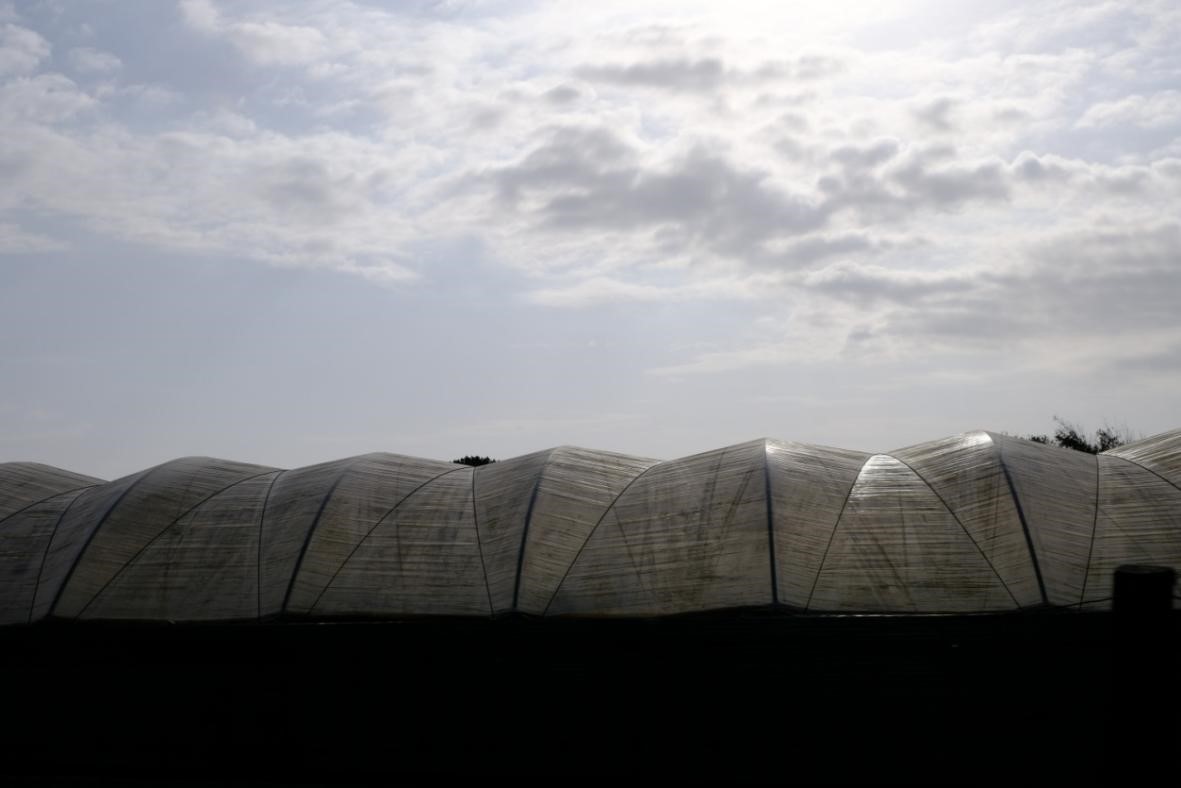
Image 5. Detail of greenhouse in Odemira. Source: Rita and Soledad
In contrast to other groups of immigrants who arrive ‘without papers’ and work on other crops in the Beja district (olives, almonds, etc.), the Asian contingents generally arrive ‘with papers’ but have to pay for everything. The difficulty of obtaining a residence permit with all the bureaucracy of the state favours the existence of very large clientelist networks that multiply and ramify. It is easy money that is made at the expense of work and precarious lives, leading to a situation of modern slavery. This is a term that is used in several intensive agricultural enclaves, such as in Huelva, where they speak of the ‘raspberry passport’ to talk about this clientelistic business of intermediate companies that hire workers.
According to some news reports, figures of up to €18,000 are quoted to facilitate entry into the EU. This is the money paid by these workers who are not only tied to precarious working conditions, but also to debt and physical threat for several years. Thus, concepts such as exploitation or human trafficking are increasingly linked to agricultural work. But when recruitment is agreed by governments, as in the case of recruitment of Moroccan women from Huelva, we also find similar situations. The search for a better life, and not just a job, means that many women stay, seek a work contract and registration, which leaves them vulnerable in the hands of similar networks, as many of the benefits that legislation denies them, such as housing registration, end up being bought. The same is true of the buying and selling of work contracts in order to be able to obtain in-country documentation in the future. Although the recruitment methods in each case are different, the results are similar: violation of social and labour rights and vulnerability of workers.
In addition to the methods of recruitment, low wages and violation of rights, there is also the problem of housing. We are talking about rural populations where there is no network of shelters or quality accommodation for seasonal workers, without the control of employers or mafias. This problem can be found in Odemira, Huelva or the province of Almería. The difference is that in Odemira, immigrants still live in large groups in small houses where they pay a lot for a bed and lack air and sanitary conditions – easy to verify, for example, simply by walking through the streets of the centre of São Teotónio – in Huelva or Almería, where the number of immigrant workers is higher, shanty-towns are well established in the territory. From the agricultural sector, the focus is always on how to increase productivity and profitability and not on guaranteeing living and working conditions for those who actually produce the value of the red fruit. The growth of this agriculture has not been accompanied by more investment in local territories to improve living conditions and public services.
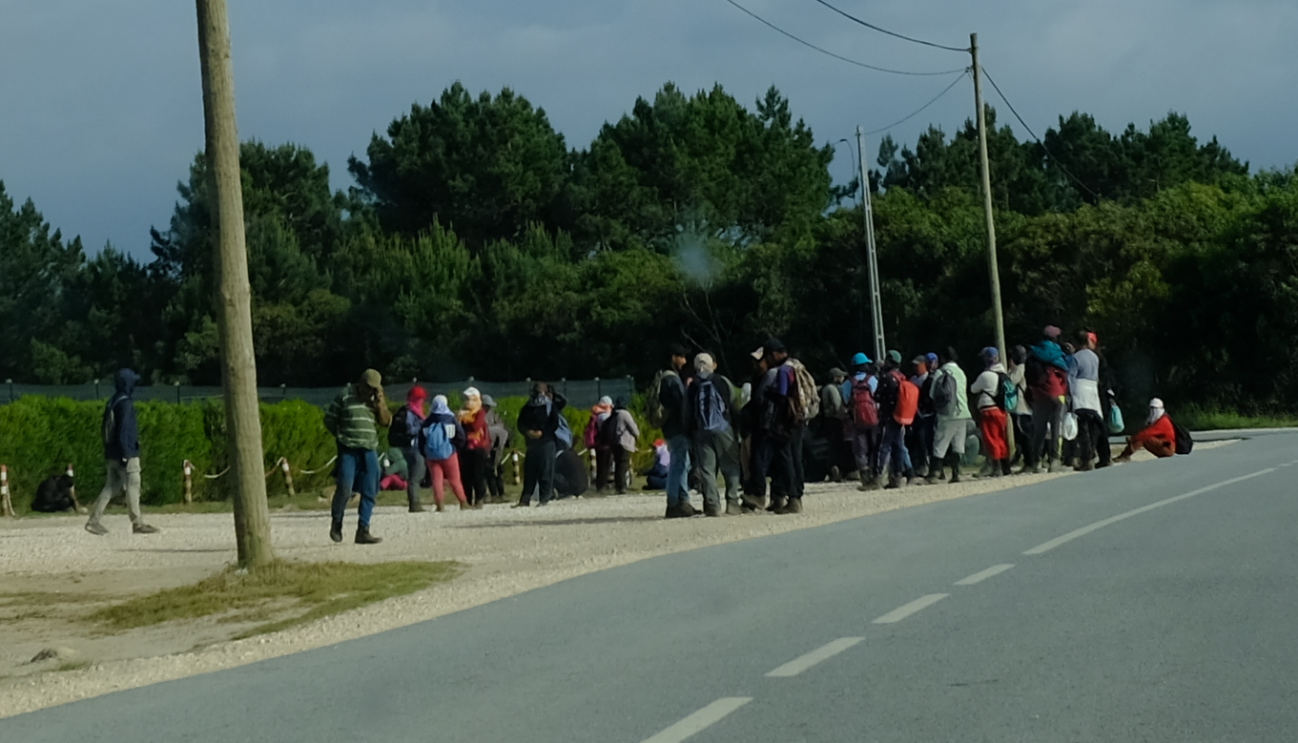
Image 6. Group of workers leaving a greenhouse in Odemira. Source: Rita and Soledad
Spain and Portugal show many similarities: precarious and cheap immigrant population for agricultural work, surveillance and social control at work, housing problems, informal economy and the weight of mafias, as well as inequality in male and female work, the latter being the most seasonal and precarious.
This population is both fluctuating and permanent: there are always workers in the sector because it needs them, but people often change, which feeds and repeats this cycle of exploitation and precariousness (and all the problems of housing, social insertion, etc.). If migrants are looking for better living conditions and come where there is work (the first condition for a better life), they only stay if they find it. It is therefore not difficult to see that the local population left when they found better working and living conditions, and then that the immigrant populations and groups of immigrants are changing: first, in the late 1990s and early 2000s, people from Eastern Europe (Ukraine, Bulgaria, Romania, etc), and then, and now, those from Asia (India, Nepal, etc).
Breaking with these cycles of precariousness and the suspended lives of so many ‘migrant’ people (who leave, enter, circulate, move, return, regroup, etc), is only possible by creating territories of dignified life, where there is work and conditions for being and being to the full. This means guaranteeing social and labour rights first and foremost, but also rethinking models in and with the territories. Intensive agricultural enclaves, which export ‘healthy’ food from Southern Europe to Northern European countries (but also water that is not available, biodiversity, work without rights, slave lives, etc.), do not respond to the hope of a better life, nor to rural territories with life, nor to a ‘healthy’ food system.
